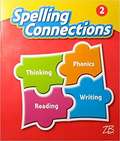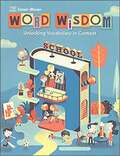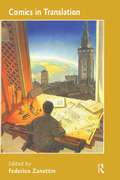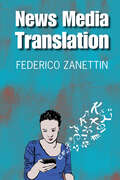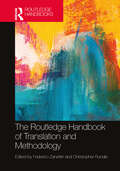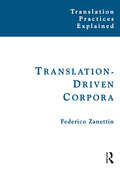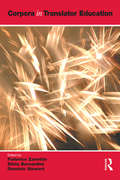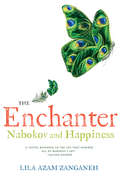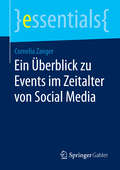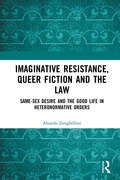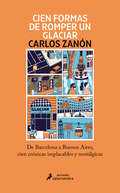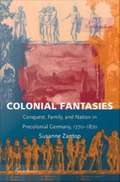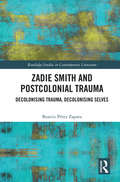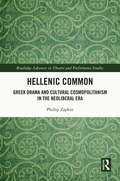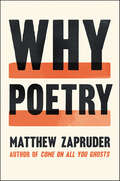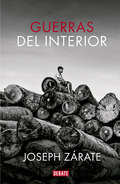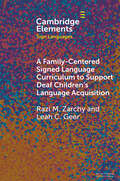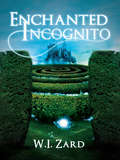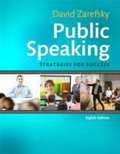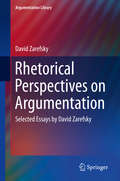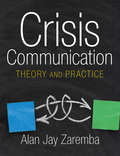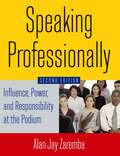- Table View
- List View
Spelling Connections Grade 2 Student Edition
by Zaner-BloserSpelling Connections Grade 2 Student Edition
Word Wisdom Unlocking Vocabulary in Context Grade 3
by Zaner-BloserZaner-Bloser Word Wisdom Grade 3 Student Edition
Comics in Translation
by Federico ZanettinComics are a pervasive art form and an intrinsic part of the cultural fabric of most countries. And yet, relatively little has been written on the translation of comics. Comics in Translation attempts to address this gap in the literature and to offer the first and most comprehensive account of various aspects of a diverse range of social practices subsumed under the label 'comics'. Focusing on the role played by translation in shaping graphic narratives that appear in various formats, different contributors examine various aspects of this popular phenomenon. Topics covered include the impact of globalization and localization processes on the ways in which translated comics are embedded in cultures; the import of editorial and publishing practices; textual strategies adopted in translating comics, including the translation of culture- and language-specific features; and the interplay between visual and verbal messages. Comics in translation examines comics that originate in different cultures, belong to quite different genres, and are aimed at readers of different age groups and cultural backgrounds, from Disney comics to Art Spiegelman's Maus, from Katsuhiro Ōtomo's Akira to Goscinny and Uderzo's Astérix. The contributions are based on first-hand research and exemplify a wide range of approaches. Languages covered include English, Italian, Spanish, Arabic, French, German, Japanese and Inuit. The volume features illustrations from the works discussed and an extensive annotated bibliography. Contributors include: Raffaella Baccolini, Nadine Celotti, Adele D'Arcangelo, Catherine Delesse, Elena Di Giovanni, Heike Elisabeth Jüngst, Valerio Rota, Carmen Valero-Garcés, Federico Zanettin and Jehan Zitawi.
News Media Translation
by Federico ZanettinAs digital convergence marks the transition from print to screen culture, translation plays an increasingly important role of in the production and dissemination of the news. The translation of information in the news media is a pervasive set of practices that affects the daily consumption of the news and a topic of relevance to scholars in several areas of the humanities and the social sciences. This book provides a wide-ranging and accessible introduction to research in news media translation practices, products and processes, illustrating and discussing historical, theoretical and descriptive perspectives. Inter- and multi-disciplinary research spans fields such as Translation Studies, Linguistics, Journalism and Media Studies, and includes approaches from Critical Discourse Analysis and narrative theory to Systemic Functional Linguistics and Corpus Linguistics. The book also offers first-hand analyses of news texts in English and Italian, approaching news translation from an ethnomethodological perspective.
The Routledge Handbook of Translation and Methodology (Routledge Handbooks in Translation and Interpreting Studies)
by Federico ZanettinThe Routledge Handbook of Translation and Methodology provides a comprehensive overview of methodologies in translation studies, including both well-established and more recent approaches. The Handbook is organised into three sections, the first of which covers methodological issues in the two main paradigms to have emerged from within translation studies, namely skopos theory and descriptive translation studies. The second section covers multidisciplinary perspectives in research methodology and considers their application in translation research. The third section deals with practical and pragmatic methodological issues. Each chapter provides a summary of relevant research, a literature overview, critical issues and topics, recommendations for best practice, and some suggestions for further reading. Bringing together over 30 eminent international scholars from a wide range of disciplinary and geographical backgrounds, this Handbook is essential reading for all students and scholars involved in translation methodology and research.
Translation-Driven Corpora: Corpus Resources for Descriptive and Applied Translation Studies (Translation Practices Explained)
by Federico ZanettinElectronic texts and text analysis tools have opened up a wealth of opportunities to higher education and language service providers, but learning to use these resources continues to pose challenges to scholars and professionals alike. Translation-Driven Corpora aims to introduce readers to corpus tools and methods which may be used in translation research and practice. Each chapter focuses on specific aspects of corpus creation and use. An introduction to corpora and overview of applications of corpus linguistics methodologies to translation studies is followed by a discussion of corpus design and acquisition. Different stages and tools involved in corpus compilation and use are outlined, from corpus encoding and annotation to indexing and data retrieval, and the various methods and techniques that allow end users to make sense of corpus data are described. The volume also offers detailed guidelines for the construction and analysis of multilingual corpora. Corpus creation and use are illustrated through practical examples and case studies, with each chapter outlining a set of tasks aimed at guiding researchers, students and translators to practice some of the methods and use some of the resources discussed. These tasks are meant as hands-on activities to be carried out using the materials and links available in an accompanying DVD. Suggested further readings at the end of each chapter are complemented by an extensive bibliography at the end of the volume. Translation-Driven Corpora is designed for use by teachers and students in the classroom or by researchers and professionals for self-learning. It is an invaluable resource for anyone interested in this fast growing area of scholarly and professional activity.
Corpora in Translator Education
by Federico Zanettin Dominic Stewart Silvia BernardiniThe use of language corpora as a resource in linguistics and language-related disciplines is now well-established. One of the many fields where the impact of corpora has been growing in recent years is translation, both at a descriptive and a practical level. The papers in this volume, which grew out of presentations at the conference Cult2k (Bertinoro, Italy, 2000), the second in the series Corpus Use and Learning to Translate, are principally concerned with the use of corpora as resources for the translator and as teaching and learning aids in the context of the translation classroom. This book offers a cross-section of research by some leading scholars in the field, who offer accounts of first-hand experience and theoretical insights into the various ways of building and using appropriate corpora in translation teaching, for the benefit of teachers and learners alike. The various contributions provide a rich source of inspiration for other researchers and practitioners concerned with 'corpora in translator education'. Contributors include Stig Johansson, Tony McEnery, Kirsten Malmkjær, Jennifer Pearson, Lynne Bowker, Krista Varantola, Belinda Maia and a number of other scholars.
The Enchanter: Nabokov and Happiness
by Lila Azam ZanganehDiscovering happiness in reading the work of an extraordinary writer. The protagonist of Vladimir Nabokov's The Gift playfully dreamed of writing "A Practical Handbook: How to Be Happy." Now, Nabokov's own creative reader Lila Azam Zanganeh lends life to this vision with sly sophistication and ebullient charm, as she shares the delirious joy to be found in reading the masterpieces of "the great writer of happiness." Plunging into the enchanted and luminous worlds of Speak, Memory; Ada, or Ardor; and the infamous Lolita, Azam Zanganeh seeks out the Nabokovian experience of time, memory, sexual passion, nature, loss, love in all its forms, and language in all its allusions. She explores Nabokov's geography-from his Russian childhood to the landscapes of "his" America-suffers encounters with his beloved "nature," hallucinates an interview with the master, and seeks the "crunch of happiness" in his singular vocabulary. This beautifully illuminated book will both reignite the passion of experienced Nabokovians and lure the innocent reader to a well of delights as yet unseen.
Ein Überblick zu Events im Zeitalter von Social Media (essentials)
by Cornelia ZangerDie explosionsartige Entwicklung der digitalen Vernetzung hat auch dieKommunikationspolitik von Unternehmen verändert. Social-Media-Kommunikation beeinflusst das Eventmarketing und bietet ein großes Potenzial für die Verbindung von multisensualen Erlebnissen mit einer Erhöhung der Reichweite von Events. Nach dem Grad der Intensität der Verbindung von realen Events und Social Media sind verschiedene Eventtypen zu ermitteln. Im Beitrag werden sowohl virtuelle Events im engeren Sinne als auch sogenannte hybride Events, bei denen reale Events mit Social-Media-Elementen verbunden sind, betrachtet.
Imaginative Resistance, Queer Fiction and the Law: Same-Sex Desire and the Good Life in Heteronormative Orders
by Aleardo ZanghelliniImaginative Resistance, Queer Fiction and the Law develops a novel account of how heteronormative sociolegal orders undermine the well-being of same-sex attracted people, even when these normative orders may fall short of coercively interfering with their choices. Queer well-being is generally studied from psychological perspectives, through the concept of ‘minority stress.’ Taking four texts of mid-century Anglo-American queer fiction as illustrative case studies, this book argues – in a philosophical rather than a psychological register – that heteronormativity also affects queer well-being in more intangible ways. The central claim is that heteronormativity shackles the imagination: it curtails no less the imaginative reach of authors of queer fiction, than our ability – engaged as we are in projects of self-authorship – to make-believe personal futures in which same-sex intimacy is brought to bear on our well-being. The book’s central claim re-works a concept central to the philosophy of fiction – ‘imaginative resistance’ – and puts it into service of questions raised in moral philosophy. Apart from its political and normative implications – strengthening the case for at least some global gay rights – and from challenging some of queer theory’s orthodoxies, the book also makes contributions to queer literary history, criticism and biography. Drawing on archival material and personal interviews, fresh readings are offered of Charles Jackson’s The Fall of Valor (1946), Gillian Freeman’s The Leather Boys (1961), and Patricia Highsmith’s The Price of Salt (1952) and The Talented Mr Ripley (1955), making a case for their inclusion in the queer literary canon. Imaginative Resistance, Queer Fiction and the Law will appeal to students of literary criticism, queer sociolegal history, law & literature, the philosophy of fiction, and queer theory, politics and ethics.
Cien formas de romper un glaciar: De Barcelona a Buenos Aires, cien crónicas implacables y nostálgicas
by Carlos ZanónCien crónicas escogidas en las que Carlos Zanón nos desvela una realidad íntima e inaudita a través de su mirada cáustica y lírica Taxistas, bares, barrios y ciudades, mitos de la infancia, libros, películas, mucha música y familia: así de extenso es el «universo Zanón», y así de variadas son su flora y su insólita fauna, fruto de una reflexión implacable, pero también un tanto melancólica, sobre la realidad y las cosas del día a día que ve, piensa y recrea a su manera.Novelista y poeta, Carlos Zanón es también un narrador que escribe en un periódico. Tras varios años de colaboraciones ininterrumpidas en prensa, nos ofrece en Cien formas de romper un glaciar la contraparte real del universo imaginario que palpita en todas sus novelas. Elogios sobre el autor:«Carlos Zanón ha desarrollado una forma de contar historias y crear personajes que lo distinguen entre muchos otros autores. El ritmo de su prosa cuidada late en cada oración, golpea, sacude.»Claudia Piñeiro «Que Carlos Zanón es una de las mejores cosas que le ha pasado a la literatura de estos lares en los últimos años, es algo que ya dejó de ser un secreto.»Carlos Prieto«Carlos Zanón es poeta. Me gusta decirlo […] para responder a quienes defienden una novela sin poesía, una narración documentada y ceñida a los hechos, periodística supongo... No sé bien qué defienden.»Lilian Neuman «El cronista despiadado de nuestros tiempos.»Rosa Mora
Colonial Fantasies: Conquest, Family, and Nation in Precolonial Germany, 1770-1870
by Susanne ZantopSince Germany became a colonial power relatively late, postcolonial theorists and histories of colonialism have thus far paid little attention to it. Uncovering Germany's colonial legacy and imagination, Susanne Zantop reveals the significance of colonial fantasies--a kind of colonialism without colonies--in the formation of German national identity. Through readings of historical, anthropological, literary, and popular texts, Zantop explores imaginary colonial encounters of "Germans" with "natives" in late-eighteenth- and early-nineteenth-century literature, and shows how these colonial fantasies acted as a rehearsal for actual colonial ventures in Africa, South America, and the Pacific. From as early as the sixteenth century, Germans preoccupied themselves with an imaginary drive for colonial conquest and possession that eventually grew into a collective obsession. Zantop illustrates the gendered character of Germany's colonial imagination through critical readings of popular novels, plays, and travel literature that imagine sexual conquest and surrender in colonial territory--or love and blissful domestic relations between colonizer and colonized. She looks at scientific articles, philosophical essays, and political pamphlets that helped create a racist colonial discourse and demonstrates that from its earliest manifestations, the German colonial imagination contained ideas about a specifically German national identity, different from, if not superior to, most others.
Zadie Smith and Postcolonial Trauma: Decolonising Trauma, Decolonising Selves (Routledge Studies in Contemporary Literature)
by Beatriz Pérez ZapataThis monograph analyses Zadie Smith’s White Teeth, On Beauty, NW, The Embassy of Cambodia, and Swing Time as trauma fictions that reveal the social, cultural, historical, and political facets of trauma. Starting with Smith’s humorous critique of psychoanalysis and her definition of original trauma, this volume explores Smith’s challenge of Western theories of trauma and coping and how her narratives expose the insidiousness of (post)colonial suffering and unbelonging. This book then explores transgenerational trauma, the tensions between remembering and forgetting, multidirectional memory, and the possibilities of the ambiguities and contradictions of the postcolonial and diasporic characters Smith depicts. This analysis discloses Smith’s effort to ethically redefine trauma theory from a postcolonial and decolonial standpoint, reiterate the need to acknowledge and work through colonial histories and postcolonial forms of oppression, and critically reflect on our roles as witnesses of suffering in global times.
Hellenic Common: Greek Drama and Cultural Cosmopolitanism in the Neoliberal Era (Routledge Advances in Theatre & Performance Studies)
by Philip ZapkinHellenic Common argues that theatrical adaptations of Greek tragedy exemplify the functioning of a cosmopolitan cultural commonwealth. Analyzing plays by Femi Osofisan, Moira Buffini, Marina Carr, Colin Teevan, and Yael Farber, this book shows how contemporary adapters draw tragic and mythic material from a cultural common and remake those stories for modern audiences. Phillip Zapkin theorizes a political economy of adaptation, combining both a formal reading of adaptation as an aesthetic practice and a political reading of adaptation as a form of resistance. Drawing an ethical centre from Kwame Anthony Appiah’s work on cosmopolitanism and Michael Hardt and Antonio Negri’s theory of the common, Hellenic Common argues that Attic tragedy forms a cultural commonwealth from which dramatists the world over can rework, reimagine, and restage materials to envision aspirational new worlds through the arts. This study will be of great interest to students and scholars of drama, adaptation studies, literature, and neoliberalism.
Why Poetry
by Matthew ZapruderAn impassioned call for a return to reading poetry and an incisive argument for poetry’s accessibility to all readers, by critically acclaimed poet Matthew ZapruderIn Why Poetry, award-winning poet Matthew Zapruder takes on what it is that poetry—and poetry alone—can do. Zapruder argues that the way we have been taught to read poetry is the very thing that prevents us from enjoying it. In lively, lilting prose, he shows us how that misunderstanding interferes with our direct experience of poetry and creates the sense of confusion or inadequacy that many of us feel when faced with it. Zapruder explores what poems are, and how we can read them, so that we can, as Whitman wrote, “possess the origin of all poems,” without the aid of any teacher or expert. Most important, he asks how reading poetry can help us to lead our lives with greater meaning and purpose. Anchored in poetic analysis and steered through Zapruder’s personal experience of coming to the form, Why Poetry is engaging and conversational, even as it makes a passionate argument for the necessity of poetry in an age when information is constantly being mistaken for knowledge. While he provides a simple reading method for approaching poems and illuminates concepts like associative movement, metaphor, and negative capability, Zapruder explicitly confronts the obstacles that readers face when they encounter poetry to show us that poetry can be read, and enjoyed, by anyone.
Guerras del interior
by Joseph Zárate"Los verdaderos conflictos sociales y ambientales no suceden allá afuera, en las carreteras bloqueadas y las marchas multitudinarias, suceden primero en nuestro fuero interno, en lo que unos llaman alma y otros, conciencia." Premio Ortega y Gasset 2016 Premio Gabriel García Márquez de Periodismo 2018 Luego de volver a sus raíces asháninkas, Edwin Chota combate la tala ilegal en la comunidad amazónica de Saweto hasta que unos traficantes de madera lo asesinan a balazos. Máxima Acuña, agricultora y pastora de los Andes de Cajamarca, se resiste a abandonar la que considera su propiedad pese a la presencia del proyecto minero Conga, que busca extraer oro en los mismos linderos. Osman Cuñachí, de once años, aparece bañado en petróleo en una foto que recorre el mundo y da cuenta del derrame de que contaminó la comunidad de Nazareth y el río donde los awajún nadaban y pescaban. Escritas con rigor periodístico y pulso literario, estas crónicas de Joseph Zárate -galardonadas con el Premio Ortega y Gasset 2016 y el Premio Gabriel García Márquez 2018- no solo buscan denunciar las guerras sociales, económicas, políticas y ambientales que explotan en el interior del Perú. También iluminan las guerras personales, psicológicas y emocionales de hombres y mujeres que, por distintas circunstancias, deciden defender y conservar sus tierras, costumbres e identidades. ¿Qué somos capaces de hacer -como individuos, como sociedad- en nombre de aquello que llamamos "progreso"?
A Family-Centered Signed Language Curriculum to Support Deaf Children's Language Acquisition (Elements in Sign Languages)
by Razi M. Zarchy Leah C. GeerDeaf children experience language deprivation at alarmingly high rates. One contributing factor is that most are born to non-signing hearing parents who face insurmountable barriers to learning a signed language. This Element presents a case for developing signed language curricula for hearing families with deaf children that are family-centered and focus on child-directed language. Core vocabulary, functional sentences, and facilitative language techniques centered around common daily routines allow families to apply what they learn immediately. Additionally, Deaf Community Cultural Wealth (DCCW) lessons build families' capacity to navigate the new terrain of raising a deaf child. If early intervention programs serving the families of young deaf children incorporate this type of curriculum into their service delivery, survey data suggest that it is both effective and approachable for this target population, so the rates of language deprivation may decline.
Enchanted Incognito
by W. I. ZardSo you want to hear my miserable tale? Bad idea. Go live vicariously through a girl whose life worked out the way she planned. A girl who didn't wake up one morning and find that her relatively simple, albeit disconnected life had been turned upside down and filled with the darkest of magic and worst of curses. Here I thought the SATs and college applications were complicated! Have you ever felt so completely lost and out of place you wondered if your life was really even yours? Well I have. I've lived most of my life feeling as though I were trapped in someone else's, so when I found out that I was born a witch, it all started to fall into place. That is until I met the tall, dark and mysterious Elliot and realized that dating in the mortal world has got nothing on the complication, desire and mistrust that surrounds romance in the magical world. It doesn't help that our families are mortal enemies either. Did Romeo and Juliet have to suffer plagued curses and time travel in their struggle? I think not. As tragic as their tale was, they were fully responsible for their fate, but not Athiya and Elliot. No, our story was completely out of our control.
Public Speaking: Strategies for Success
by David ZarefskyThe Eighth Edition builds on the idea that public speaking is a strategic practice. It allows readers to recognize that public speaking is an art dictated by the dynamics of an audience. By learning a set of norms and expectations and strategizing how to plan for any situation, readers are better able to achieve their public speaking goals. Students learn to prepare for any public speaking situation by assessing different strategies and developing habits of analysis and memory through examples, activities and sample speeches. Emphasis on underlying theory throughout helps readers understand how certain speakers and their audiences engage one another.
Rhetorical Perspectives on Argumentation
by David ZarefskyThis book contains 20 essays tracing the work of David Zarefsky, a leading North American scholar of argumentation from a rhetorical perspective The essays cohere around 4 general themes: objectives for studying argumentation rhetorically, approaches to rhetorical study of argumentation, patterns and schemes of rhetorical argumentation, and case studies illustrating the potential of studying argumentation rhetorically These articles are drawn from across Zarefsky's 45-year career. Many of these articles originally appeared in publications that are difficult to access today, and this collection brings the reader up to date on the topic. Zarefsky's scholarship focuses on the role of language in political argumentation, the ways in which argumentation creates public knowledge and belief, the influence of framing and context on what is said and understood, the deployment of particular patterns and schemes of argumentation in public reasoning, and the influence of debate on politics and governance. All these topics are addressed in this book. Each of the conceptual essays includes brief application to specific cases, and five extended case studies are also presented in this volume. The case studies cover different themes: two explore famous political debates, the third focuses on presidential rhetoric across the course of United States history, the fourth on the arguments for liberalism at a time of political polarization, and the fifth on the contemporary effort to engage the United States with the Muslim world. This book is of interest to scholars in the fields of philosophy, logic, law, philosophy of law, and legal history. The range of topics and concepts addressed, the interplay of concepts and cases and the unifying perspective of rhetorical argumentation make this book a valuable read for students of argumentative practice, whether rhetorically or otherwise.
Crisis Communication: Theory and Practice
by Alan Jay ZarembaCrises happen. When they do, organizations must learn to effectively communicate with their internal and external stakeholders, as well as the public, in order to salvage their reputation and achieve long-term positive effects. Ineffective communication during times of crisis can indelibly stain an organization’s reputation in the eyes of both the public and the members of the organization. The subject of crisis communication has evolved from a public relations paradigm of reactive image control to an examination of both internal and external communication, which requires proactive as well as reactive planning. There are many challenges in this text, for crisis communication involves more than case analysis; students must examine theories and then apply these principles. This text prepares students by: Providing a theoretical framework for understanding crisis communication Examining the recommendations of academics and practitioners Reviewing cases that required efficient communication during crises Describing the steps and stages for crisis communication planning Crisis Communication is a highly readable blend of theory and practice that provides students with a solid foundation for effective crisis communication.
Speaking Professionally: Influence, Power and Responsibility at the Podium
by Alan Jay ZarembaUpdated with new and current examples throughout, this concise guide is a rich resource for anyone who wants to become more effective in speaking settings. It covers all the basics and identifies essential principles that will help readers to efficiently prepare, deliver, and evaluate presentations.

